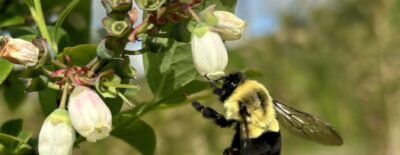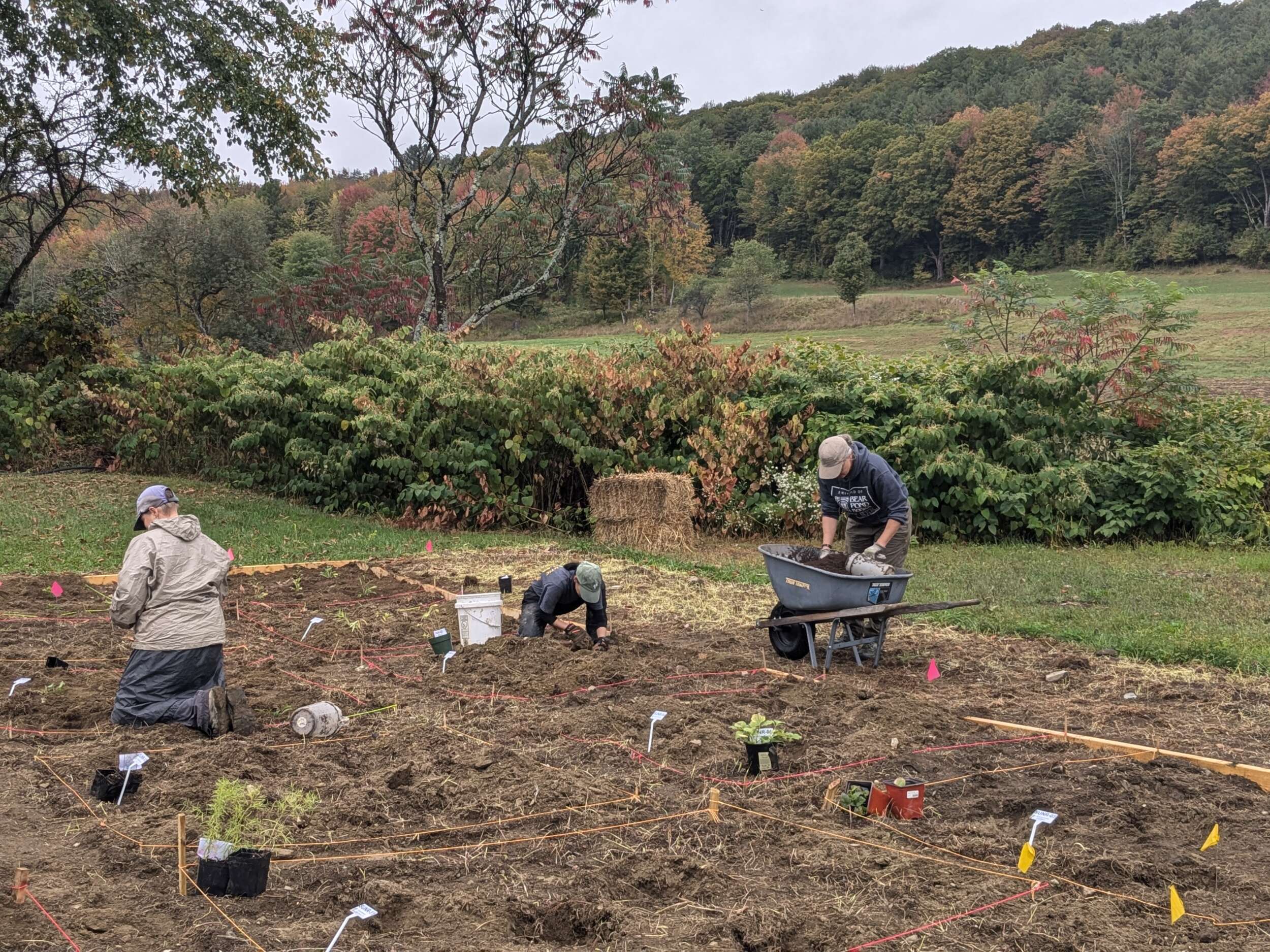We have recently increased our research and monitoring efforts in human-dominated landscapes to capture a broader range of ecological systems in our work, from cities and suburban areas to remote and wild places where land is used for construction, recreation, agriculture and other human-focused activities.
Interested in having a VCE conservation biologist speak at your event, or lead a field outing?
Please fill out our Speaker Request Form to start the process.
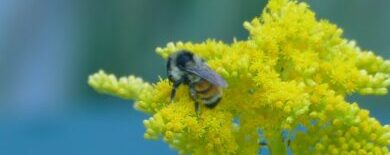
Pollinator Interactions on Plants Project
Initiated in 2023 and known as PIP for short, this project studies plant-insect interactions across New England with the help of community scientists who upload data on iNaturalist. All you need is a camera (or your phone) and the enthusiasm to document insects visiting flowers in your daily travels or in your yard. Learn more »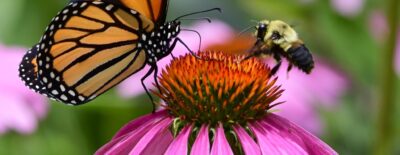
Native Plants and Pollinators Ecotype Experiment
To address the gaps in our current knowledge about plant provenance, VCE Conservation Biologists are collaborating with Native Plant Trust and Northeast Seed Network to implement an innovative, community-based common garden experiment to assess how plant provenance influences plant resilience, plant traits, and pollinator support. Learn more »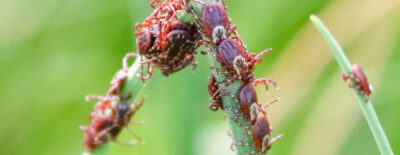
Upper Valley Backyard Tick Project
In 2023, the Upper Valley Backyard Tick Project crawled into existence to gather data that will help landowners make informed pest management decisions by understanding if commercially-applied tick chemical control measures have unintended consequences for beneficial insect communities and pollinators. Learn more »